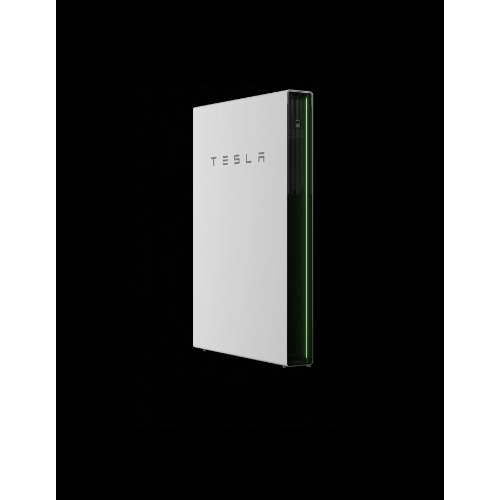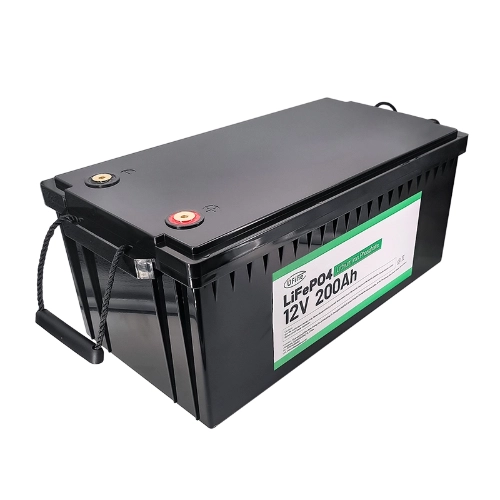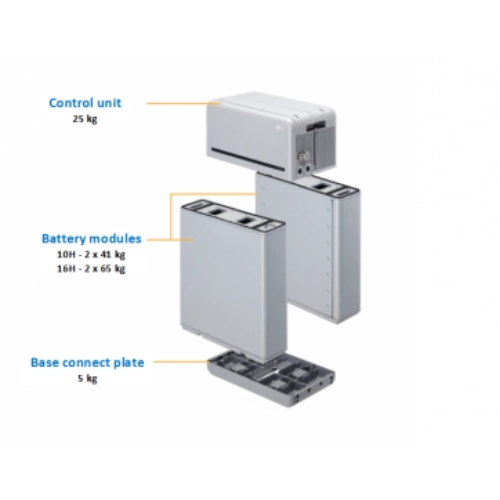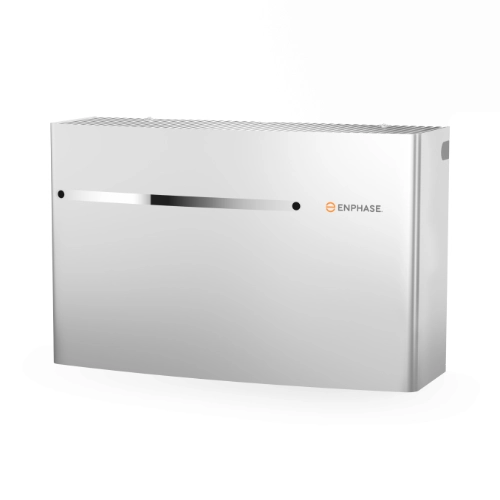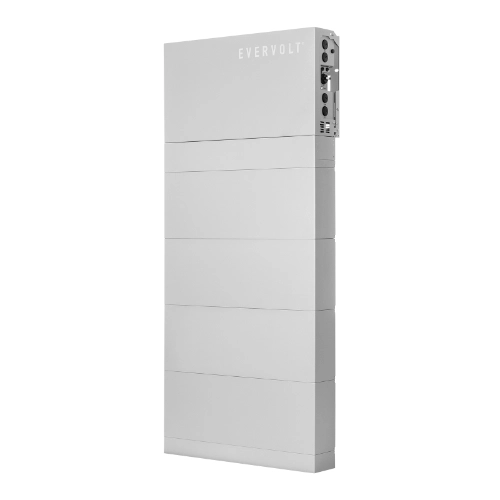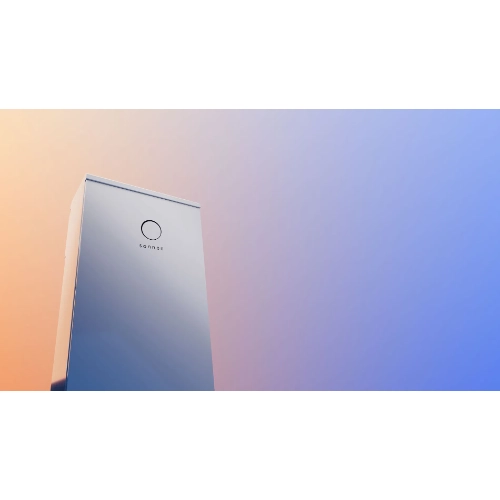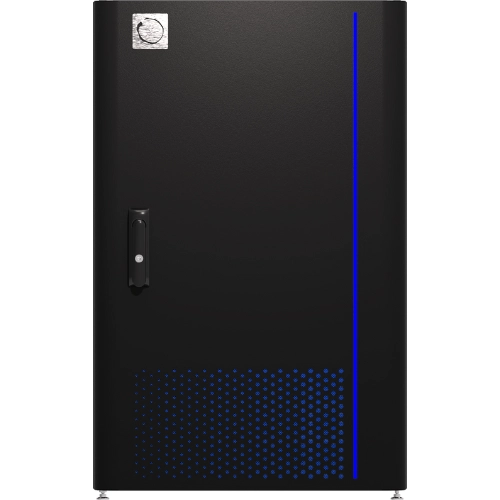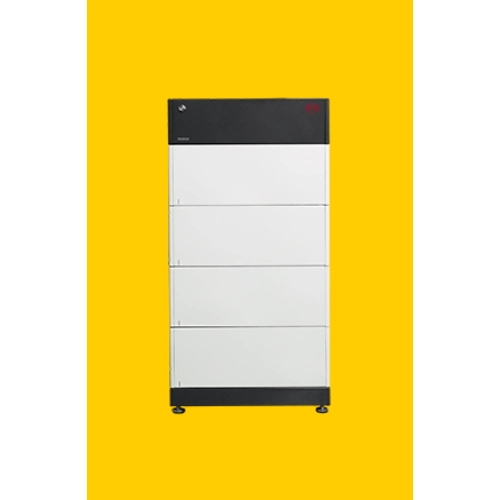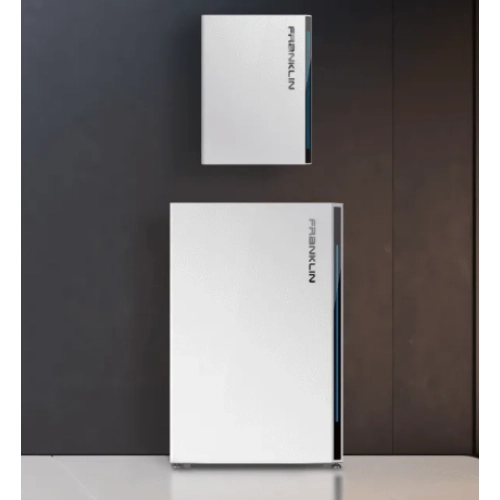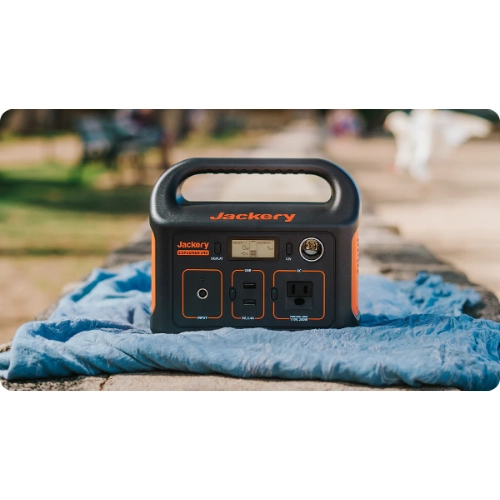There will be a vast requirement for continuous energy in 2024, and grid batteries have become essential for those seeking sustainable solutions. The specifications of the currently available best off-grid battery are critical.
This guide will explore the ten best off-grid batteries available and more!
Part 1. What are off-grid batteries?
Off-grid batteries are the lifeblood of any independent power system. It is designed to store energy from renewable sources like solar panels or wind turbines. These batteries provide a continuous power supply, ensuring you’re not tied to the grid.
Off-grid batteries store excess energy produced by renewable sources. This stored energy can be used when energy production is low.
Key Benefits Of Using Off-Grid Batteries
- With off-grid batteries, you free yourself from the traditional energy grid.
- You are always protected from outages when it is equipped with off-grid batteries.
- The initial investment will be substantial, but off-grid battery applications will save you money in the long run.
- You can expand your energy storage system as your energy needs grow.
Part 2. Top 10 recommended off-grid batteries for 2024
1. Tesla Powerwall
Key Specifications
- Capacity: 13.5 kWh
- Power Output: 7kW peak / 5kW continuous
- Efficiency: 90% round trip
- Operating temperature: -4F to 122F
- Mounting options: Floor or wall, indoor or outdoor
Pros
- Provides seamless backup power during outages.
- High energy capacity with 100% depth of discharge.
- Stackable design for scalability of up to 10 units.
- Weather-resistant and suitable for various climates.
Cons
- The heavy unit requires professional installation.
2. Ufine 12 V 200Ah LiFePO4 Battery
Key Specifications
- Capacity: 200Ah
- Nominal Voltage: 12.8V
- Energy: 2560Wh
- Max. Discharge Current: 200A
- Cycle Life: 1000 cycles at ≥92%
Pros
- Stable thermal and chemical properties reduce the risk of combustion.
- Long lifespan with high durability across multiple charge cycles.
- Non-toxic LiFePO4 chemistry makes it environmentally friendly.
- Rapid charging capability minimizes downtime during use.
Cons
- Requires specific charging conditions to maximize lifespan and efficiency.
- Performance may be affected if not stored within the recommended temperature range.
3. LG Chem RESU
Key Specifications
- Usable Energy: 9.6 kWh
- Rated Power: 5 kW / Peak Power: 7 kW
- Dimensions: 504 x 817 x 295 mm
- Weight: 111 kg
- Warranty: 10 years
Pros
- High energy capacity supports self-consumption for single-family homes.
- Modular design allows scalability with the option to connect up to two units.
- Remote monitoring through an app or internet browser enhances user control.
- Robust aluminum housing with an IP55 rating.
Cons
- Heavyweight.
- Higher upfront costs compared to other battery options may deter some buyers.
4. Enphase IQ Battery
Key Specifications
- Usable Energy Capacity: 10.08 kWh
- Power Rating: 3.84 kVA
- Peak Output Power: 5.7 kVA
- DC Round-Trip Efficiency: 96%
- Weight: 341 lbs
Pros
- A fully integrated AC-coupled storage system simplifies installation and use.
- The quick plug-and-play setup allows installers to deploy it quickly.
- High-efficiency ratings.
- Consists of stable lithium iron phosphate (LFP) chemistry.
Cons
- Hefty weight may require additional installation support.
- Limited capacity compared to larger storage systems might only suit some needs.
5. Panasonic EverVolt
Key Specifications
- Usable Energy Options: 9 kWh, 13.5 kWh, 18 kWh
- DC Input Capacity: Up to 15.2 kW
- Backup Power Output: Up to 7.6 kW (single cabinet), 30 kW (four cabinets)
- Warranty: 12 years covering product and labor
- Mounting Options: Indoor or outdoor, wall-mounted or floor-mounted
Pros
- High DC input capacity with multiple MPPTs maximizes energy harvesting from solar panels.
- Excellent backup power performance ensures reliability during grid outages.
- The compact and sleek design fits various installation environments.
- Seamless integration with Panasonic solar panels offers a complete energy solution.
Cons
- Higher initial investment compared to traditional energy storage solutions.
- Compatibility limitations may exist with non-panasonic solar equipment.
6. Sonnen Evo
Key Specifications
- Max Capacity: 30 kWh
- Cycle Warranty: 10 years or 10,000 cycles
- Outdoor Rating: IP56
- Estimated Lifetime Energy Throughput: Up to 90 MWh
- Stackable Units: Up to three systems per home
Pros
- Scalable design allows homeowners to increase capacity by stacking multiple units.
- A high outdoor rating ensures durability.
- Industry-leading warranty.
- Participation in the sonnenConnect program offers potential financial rewards for grid stabilization.
Cons
- Higher initial investment compared to more straightforward energy storage solutions.
- Requires installation by qualified professionals, which may add to overall costs.
7. Blue Planet Energy Blue Ion
Key Specifications
- Usable capacity options: 8 kWh, 12 kWh, 16 kWh
- Maximum continuous power: 8 kW
- Cycle life warranty: 15 years or 8,000 cycles
- Depth of discharge: 100%
- Temperature range: -4°F to 122°F for discharge
Pros
- Flexible energy storage from multiple sources
- Fire-safe lithium iron phosphate chemistry
- Modular design allows easy capacity expansion
- Easy installation with removable access panels
Cons
- Higher initial cost compared to traditional batteries
- Requires a compatible inverter for optimal performance
8. BYD Battery-Box
Key Specifications
- Usable capacity: 5.1 to 38.4 kWh for HVS; 8.1 to 65.0 kWh for HVM
- Battery chemistry: Lithium Iron Phosphate (LFP)
- High voltage options: HVS, HVM, HVL
- Low voltage options: LVS, LVL
- Modular design allows scalability
Pros
- Flexible configurations for various applications
- Cobalt-free chemistry ensures safety and longevity
- Easy installation with modular components
- Award-winning efficiency and safety standards
Cons
- Initial investment can be high for larger systems
- Requires external inverter for low voltage options
9. Franklin Home Power
Key Specifications
- Usable energy capacity: 13.6 kWh per power, up to 204 kWh with 15 powers
- Continuous output: 5 kW, peak output: 10 kW
- Operating temperature range: -20°C to 50°C
- Protection rating: IP67 (water and dust resistance)
- 12-year warranty on performance and product
Pros
- Smart circuits for auto load-shedding enhance backup efficiency
- LFP battery technology increases safety during use
- Compatible with generators for off-grid power solutions
- Recognized by significant financing companies for easy financing options
Cons
- Limited operating altitude (max 4000 m)
- The initial investment may be significant for larger setups
10. Jackery Explorer Series
Key Specifications
- Capacity: 240Wh
- Output: 200W (400W surge power)
- Charging Time: Quick AC charging in 5.5 hours
- Weight: 6.6 lbs
- Output Ports: Multiple output ports, including a pure sine wave AC outlet
Pros
- Lightweight and portable design for easy transport
- Ideal for powering small appliances during outdoor activities
- Advanced safety features enhance reliability
- The sleek and stylish design fits well with camping gear
Cons
- Limited capacity may not support larger devices
- Longer charging time compared to higher-capacity models
Part 3. Key factors to consider when choosing off-grid batteries
The following are the key factors to consider when choosing the best off-grid battery:
- Look for batteries with high-efficiency ratings.
- Consider the battery’s lifespan, as some types last longer.
- Balance the initial cost with long-term savings.
- Ensure the battery is compatible with your existing renewable energy system,
Part 4. FAQs
-
What is the best off-grid battery?
The UFine battery is one of the best off-grid batteries on the market. It is known for its durability, high efficiency, and long lifespan. -
Which battery is most suitable for off-grid system applications?
Lithium iron phosphate (LiFePO4) batteries are typically the most suitable for off-grid system applications. -
What is the best battery for off-grid tiny houses?
For off-grid tiny houses, the best battery is often one that combines compactness with efficiency. -
What is the best voltage for an off-grid battery?
The best voltage for an off-grid battery depends on your system’s requirements, but 48V is commonly recommended. -
How big should my off-grid battery be?
The size of your off-grid battery depends on your energy consumption and the autonomy you desire.
Related Tags:
More Articles

How to Choose the Best Floor Scrubber Battery for Commercial Cleaning?
Selecting the ideal floor scrubber battery ensures a long runtime, rapid charging, and minimal maintenance for efficient commercial cleaning operations.
Battery for Blower vs Battery for Leaf Vacuum: Which One Should You Choose?
Battery for blower vs leaf vacuum—learn the key differences in power, fit, and runtime to choose the right battery for your outdoor tool needs.
How to Choose the Right Battery for Blower?
Choosing the right blower battery? Consider voltage, capacity, chemistry & usage. This guide helps match the best battery for peak performance.
How to Choose the Best Insulated Battery Box for Lithium Batteries?
Choosing the Best Insulated Battery Box for Lithium Batteries? Discover key factors such as size, material, and safety for optimal protection and performance.
7 Critical Elements on a Lithium Battery Shipping Label
What must be on a lithium battery shipping label? Learn 7 key elements to ensure safety, legal compliance, and correct handling across all transport modes.
